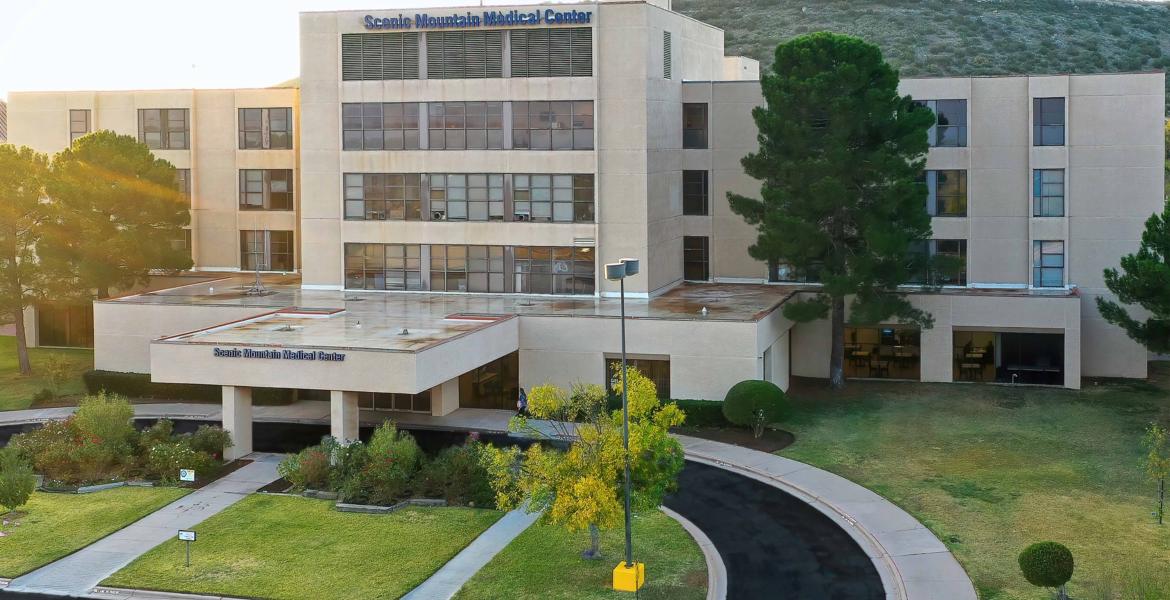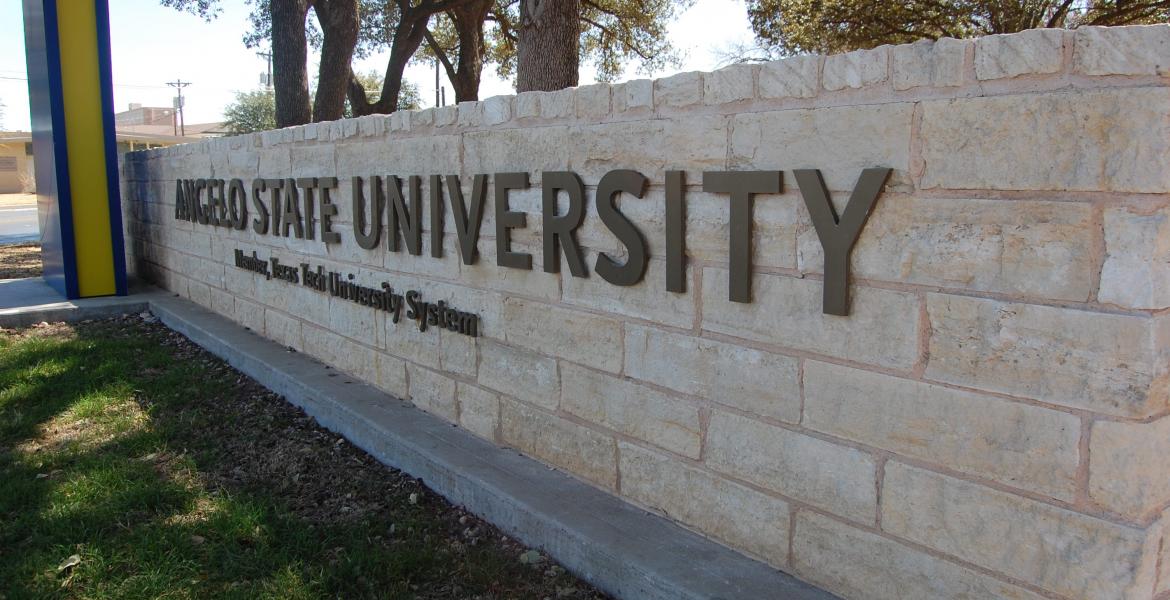By Jayme Lozano Carver, The Texas Tribune
FLOYDADA, TX — Every fall, when the air starts to chill and the nights get longer, the small town of Floydada becomes saturated in a hue of orange.
The town’s welcome sign is surrounded by large pumpkins, stacked for the ideal fall photo op. Smaller pumpkins line the walkways to local businesses. Visitors flock in from all over the region — and state — to find the perfect pumpkin to welcome the holiday season.
Floydada has carved its own path in the pumpkin industry. The small town of 2,500 people isn’t just another place tapping into the pumpkin craze that’s taken over the masses in recent years. It is known as the Pumpkin Capital of the U.S.
“If I say ‘Floydada’ to most people in the state, they’re going to say ‘pumpkins,’” said Ryan Crowe, executive director for the Floydada Economic Development Corporation. “You can’t pay for name recognition like that.”
Pumpkins are synonymous with Halloween, Thanksgiving, and just about every fall-related activity in between. As the famous fruit stars in everything from jack-o-lanterns to pumpkin spice lattes and pies, it’s given a boost to the national agriculture industry. In 2024, U.S. pumpkin farmers produced more than $274 million in market value.
Texas is among the top six states in the United States for pumpkin production. In 2020, Texas farmers led the nation in pumpkin crop value at $25.9 million. In the following year, they produced 108 million pounds of pumpkins. In Floydada, about 50 miles northeast of Lubbock, around 50 million pounds of the state’s pumpkins are grown every year.

“That’s the main thing that keeps us on the map,” said Kalli Martin, president of the Floydada Chamber of Commerce. “So we’re very prideful of it and all our growers.”
Crowe has taken Floydada-grown pumpkins all over the country — from the Texas Department of Agriculture in Austin to Congressional offices in Washington. When he’s stopped by airport security or officers guarding the nation’s capitol, Crowe sees it as another opportunity to brag and let them know about Floydada’s legacy.
“We are all collectively in agreement that this is who we are, and this is how we are going to talk about our community,” Crowe said. “And it’s all going to be surrounded by a very visible sign of two major holidays that happen every year.”
Jason Pyle, owner and producer of the Pumpkin Pyle farm, is one of the main pumpkin growers in Floydada. Pyle and his family started growing in 1991 with about 25 acres. They now have 1,200 acres and grow more than 50 varieties of pumpkins, gourds, squash, hay bales and corn bundles.
“We tried to make it a one-stop shop deal for fall decor,” Pyle said.

As their farm flourished, so did their business deals. Pyle pumpkins can be found in local grocery stores and large chains like H-E-B. The Dallas Arboretum regularly uses Pyle’s pumpkins for its annual fall display and elaborate pumpkin villages. Pyle, 50, ships his crop to other states too, including Oklahoma, Mississippi, Arkansas, and even as far as Florida. Pyle said when the season is in full swing, he ships around 1,500 bins of pumpkins a day.
The season is getting longer, too. Pyle used to start selling pumpkins around mid-September. More recently, the farm began selling pumpkins by the end of August. Pyle also grows cotton and other commodities, but people don’t care about that, he jokes. They reach out and ask him how the pumpkins are growing, and even come out to his warehouse to see the behind-the-scenes action.
“It’s pretty amazing how people have flocked to this,” Pyle said. “I thought it would be a fad, but it has really blown up the last couple of years.”
Pyle credits much of his family’s success to the community and how the town has embraced the pumpkin industry. Floydada hosts its annual Punkin’ Days on the second Saturday of October every year. The celebration has grown during the last 40 years, with this year’s attendance drawing in an estimated 12,000 people.
It has made fall one of Tim Assiter’s favorite times of the year. Assiter is the owner of the Assiter Punkin Ranch, and by growing pumpkins in Floydada, he’s continuing a family tradition that began in the 1960s. Assiter and his family run the only pumpkin patch in Floyd County, which is free to the public and has pumpkin train rides, carnival rides, and a petting zoo for visitors.
“It’s a real pleasure for us to see our hard work rewarded with the smiles on kids’ faces,” Assiter said.
Assiter’s family has grown pumpkins in Floydada for more than 60 years. A man named B.A. Robertson, who Assiter called “Uncle Slim,” planted five acres of pumpkins in the late 1950s. When Assiter’s grandfather passed away, Robertson took Assiter’s father under his wing, and he started growing pumpkins at 16. From there, growing pumpkins became ingrained in the Assiter family.
However, there are fewer growers and acres than there were in the past. In 1987, there were 35 growers covering about 3,500 acres. Now, Assiter said there’s only three growers — him, Pyle, and Amado Morales — who grow around 1,500 acres a year. Still, Assiter said the number of pumpkins has stayed the same.

While the Pumpkin Capital declaration is self-proclaimed, Texas lawmakers officially declared it the pumpkin capital of Texas in 2013. Still, Assiter said the title is very important to him and the community. Pumpkins are indigenous to the area, and the Chamber of Commerce has promoted the crop to ensure the community’s success. Assiter said it’s helped make Floydada, and their pumpkins, famous.
“People want a genuine Floydada pumpkin,” Assiter said.
Martin, with the Chamber of Commerce, said the future of Floydada will continue to flourish with the annual pumpkin crop. The economic development is trying to expand their title too, sort of. Morton, Illinois, home to Libby’s pumpkin products, has claimed the title of “Pumpkin Capital of the World.”
Illinois is the nation’s largest pumpkin producer. However, according to the USDA, most of the pumpkins grown in Illinois are used for pie filling and other food uses, which demand a lower price per pound than decorative pumpkins. This still gives Texas a slight edge in the competition, and has inspired Crowe and others in Floydada to try and see who can claim to be the pumpkin capital of the universe.

This article first appeared on The Texas Tribune.
Subscribe to the LIVE! Daily
Required






Post a comment to this article here: